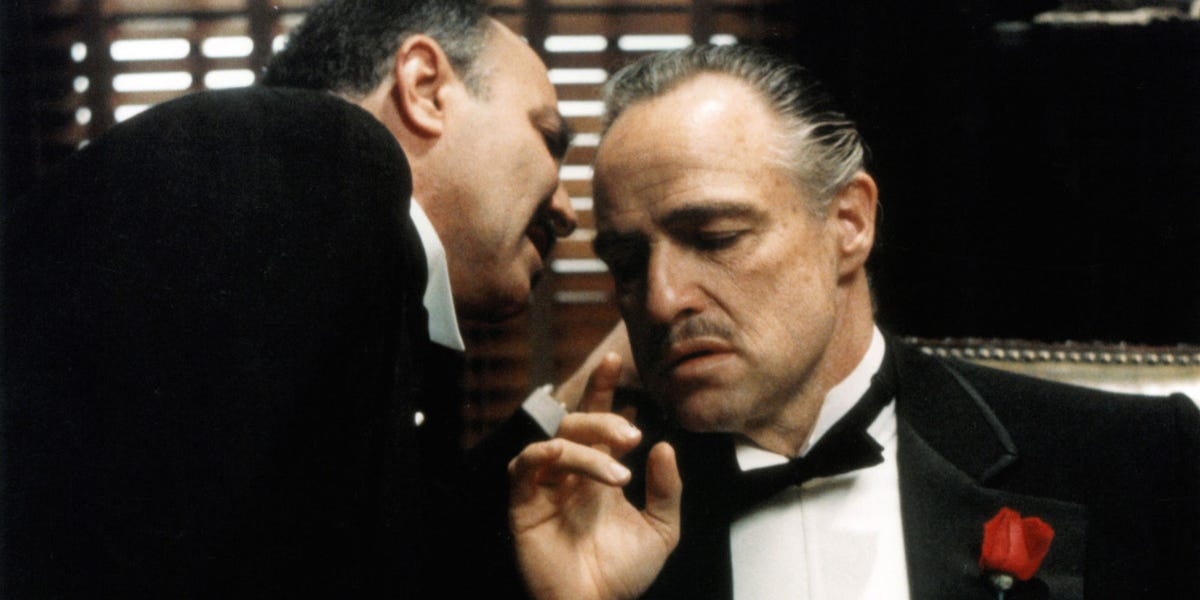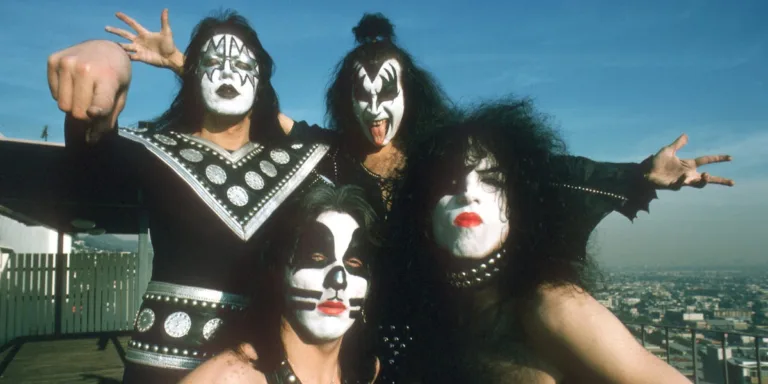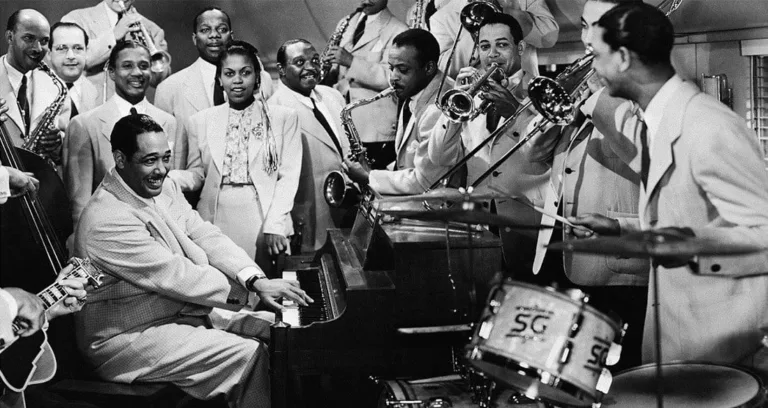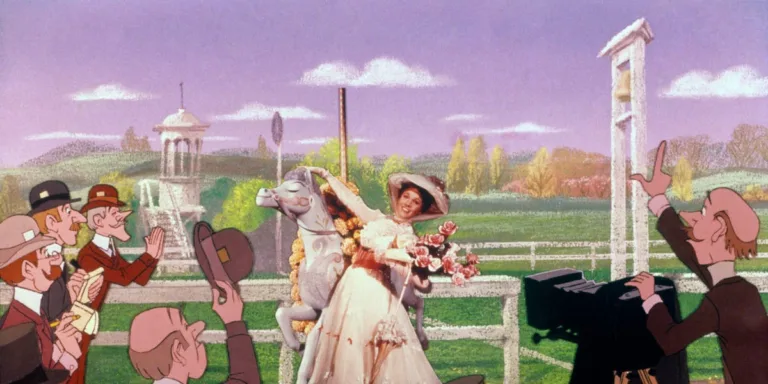The Godfather is a cinematic masterpiece that has captivated audiences worldwide with its gripping tale of family, loyalty, and betrayal within the shadowy world of organized crime. But beyond its fictional characters and intricate plot lies a fascinating truth: The film draws heavily from real-life mobsters and events.
This inspiration isn’T Just Superficial; it runs deep through the very core of the story. From the cunning strategist Vito Corleone to the ambitious Michael, each character bears striking resemblance to individuals who shaped the American underworld. The Godfather’s enduring power stems not only from its compelling narrative but also from its ability to illuminate a hidden world, blurring the lines between fiction and reality.
If you’Ve Ever Wondered who is The Godfather based on or if there’s any truth behind the captivating saga, prepare to delve into the fascinating history that inspired this iconic film.
Vito Corleone: The Costello Connection
At the heart of The Godfather lies Vito Corleone, the patriarch whose wisdom and ruthlessness command both fear and respect. While a fictional creation, Vito’s character draws heavily from a real-Life Figure: Frank Costello, a notorious mobster who rose to prominence in the mid-20th century. Like Vito, Costello was known for his strategic brilliance and ability to navigate the treacherous waters of organized crime with cunning and grace.
Costello’s influence extended far beyond the Criminal Underworld; he wielded power in politics and Business Circles, much like Vito’s reach within the Corleone family. Both men understood the importance of maintaining a public persona while operating in secrecy. Costello even cultivated a reputation for philanthropy, mirroring Vito’s facade of respectability. This connection to Costello adds another layer of depth to Vito Corleone, transforming him from a fictional character into a complex reflection of a real-life figure who embodied both power and cunning.
Understanding the godfather based on a true story influence of Frank Costello helps us appreciate the intricate tapestry woven by The Godfather’s creators.
Johnny Fontane’s Hollywood Ties
Johnny Fontane, the ambitious singer seeking Vito’s help to secure a coveted Hollywood role, is not merely a fictional creation. He embodies the real-life experiences of Frank Sinatra, who navigated the treacherous world of show business with the backing of Organized Crime Figures. Just like Johnny relies on Vito’s Influence To Advance His Career, Sinatra was known to have connections with mobsters who helped him secure gigs and navigate the competitive entertainment industry.
Sinatra’s rise to fame coincided with the golden age of Hollywood, mirroring Johnny’s aspirations for stardom. Both men possessed undeniable talent and charisma, but their paths were intertwined with the shadowy world of organized crime. This connection adds a layer of realism to Johnny’s story, highlighting the complex relationships between show business and the underworld during that era.
The parallels between Sinatra and Johnny Fontane demonstrate how is the godfather based on a True Story elements can be woven into fictional narratives to create compelling and believable characters.
 Where Is Ice Spice From? Rappers Origin, Nationality & More
Where Is Ice Spice From? Rappers Origin, Nationality & MoreMoe Greene: A Reflection of Bugsy Siegel
Moe Greene, the flamboyant and ruthless casino owner who meets a violent end in The Godfather, is a character heavily inspired by Bugsy Siegel, a notorious real-Life Mobster. Both men were known for their Extravagant Lifestyles, their ambitions to build empires in Las Vegas, and their ultimately tragic fates. Like Moe’s downfall at the hands of the Corleone family, Bugsy Siegel was assassinated in 1947, Leaving His Ambitious Dreams Unfinished.
Siegel’s vision for a glamorous casino resort on the Nevada strip mirrored Moe Greene’s aspirations in The Godfather. Both men sought to bring glitz and excitement to Las Vegas, transforming it into a playground for the rich and powerful. Their ruthless business practices and connections to organized crime also shared striking similarities, reflecting the dark underbelly of the Burgeoning Gambling Industry.
The character of Moe Greene serves as a chilling reminder that is godfather based on a true story elements can be found in even the most fictionalized narratives.
Michael Corleone’s Transformation
Michael Corleone’s journey from reluctant son to ruthless capo is one of the most compelling arcs in cinematic history. While entirely fictional, his transformation reflects the real-life experiences of Salvatore “Bill” Bonanno, a prominent figure in The American Mafia. Like Michael, Bonanno initially resisted involvement in the Family Business, preferring a life outside the criminal underworld. However, Circumstances Forced Him Into Leadership, and he ultimately proved to be a formidable and ruthless leader, Much Like His Fictional Counterpart.
While both men shared similar paths, Their Personalities Diverged Significantly. Michael’s cold-blooded pragmatism contrasts with Bonanno’s more cautious and strategic approach. Nevertheless, the is the godfather a true story inspiration from Bonanno provides a fascinating glimpse into the real-life pressures and influences that shape Individuals Within Organized Crime Families.
It’s this blend of fictional narrative and real-world parallels that elevates Michael Corleone’s character beyond a simple gangster archetype, making him a complex and enduring symbol of ambition, power, and the corrupting influence of violence.
Echoes of Real-Life Mobster Conflicts
The Godfather doesn’t just draw inspiration from individual mobsters; it also captures the essence of real-life conflicts that plagued organized crime families in the 20th century. The betrayal and subsequent violence between Michael Corleone and his rivals echo historical power struggles within the Mafia.
For instance, the character of Salvatore Tessio, who betrays Michael to rival families, mirrors the actions of real-life mobsters who switched allegiances or engaged in vendettas for personal gain. These conflicts often resulted in bloody turf wars and ruthless eliminations, mirroring the escalating violence depicted in The Godfather’s narrative.
By weaving these echoes of is the godfather based on a true story events into its fictional tale, the film provides a chillingly realistic portrayal of the internal dynamics and brutal consequences that shaped the world of organized crime.










